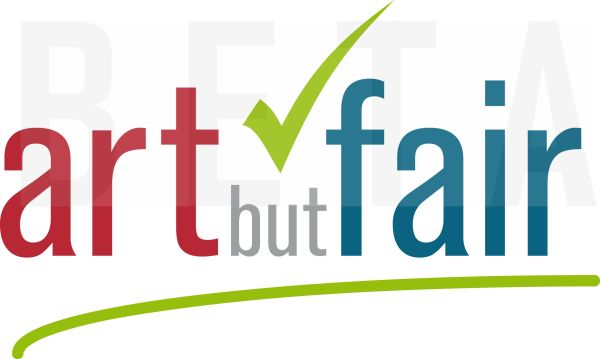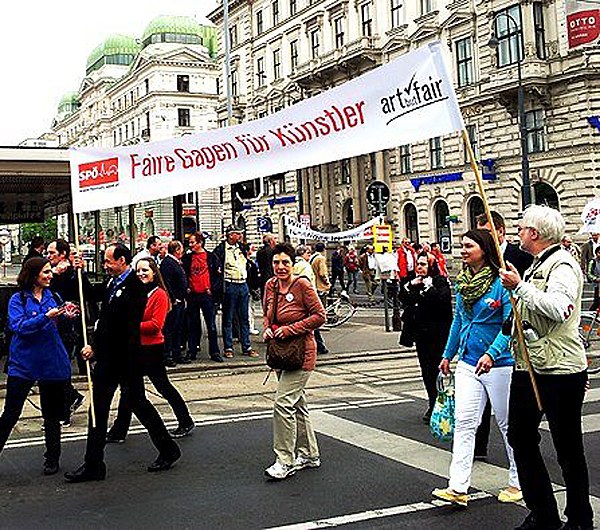The Artists’ Revolution & “art but fair”

On 19 February 2013, the musical theater producer Johannes Maria Schatz created, on impulse, a Facebook page called “The saddest and most outrageous examples of artists’ fees and audition experiences”; it immediately whipped up a veritable storm amongst artists. Within hours, the page had several hundred “likes”; after two and a half months there are now over 9,000. Artists of all disciplines started to share their own experiences, bringing to light hair-raising and degrading conditions under which artists are forced to work. For the majority of artists, it is well-nigh impossible to earn a living in their chosen profession, despite having undergone years of study and being highly qualified. The first media reports on this “Artists’ Wailing Wall” appeared in the Berliner Zeitung and the Frankfurter Rundschau.
The Facebook page received high-profile support on 11 March 2013, when the Austrian mezzo-soprano Elisabeth Kulman dared to openly denounce unfair practices in the cultural “super-league”, which had previously only been whispered off the record. She criticised in particular the abolition (without any substitution) of rehearsal fees by the Salzburg Festival under director Alexander Pereira for opera productions requiring several weeks’ rehearsal; scheduling jammed together with no regard for singers’ physical capacity; and management incompetence and corruption. Ever since she called artists to the “Revolution” on 16 March 2013, the media has pounced on this hot topic (it was covered by, amongst others, Opernnetz, Salzburger Nachrichten, Die Welt, Wiener Zeitung, Süddeutsche Zeitung, Profil, Kurier, Artsjournalblog “Slipped Disc”, ORF, BR, WDR and NDR).
Elisabeth Kulman’s public criticism was supported by fellow singers including Laura Aikin, Marlis Petersen, Markus Brück, Thomas Moser, Jonas Kaufmann and Simon Keenlyside. Eminent international agent Dr Germinal Hilbert, directors Barrie Kosky, Sir Peter Jonas and Ioan Holender, numerous journalists and psychiatrist Dr Déirdre Mahkorn, head of Germany’s first “stage fright ambulance”, agreed that “this diseased system is harming artists”. A wide-ranging and lively discussion is now under way which is making the huge need for action more than obvious.
The team around Johannes Maria Schatz and Elisabeth Kulman is pursuing the following goals with this “Artists’ Revolution”:
- to connect all artists with one another and to bring about solidarity amongst them;
- to bring the public’s attention to the grievances we face and to bring light to the professional image of artists;
- to raise awareness about the significance and unique worth of the arts and the artists;
- to bring all parties involved in the cultural milieu – artists, presenters, artistic administrators, agents, pedagogues, cultural politicians, etc. – to the negotiation table and to look, collectively and through a constructive dialogue, for measures to improve upon and to correct the situation.
An on-line discussion board for all professionals who share the aim of reforming the sector, particularly the opera industry, is already in its beginning stages (OpernReform.com).
Simultaneously, the “Golden Rules for the Artistic Milieu” are being formulated, which in connection with the guidelines of the “art but fair” seal of approval, which are to be self-imposed by presenters, should guarantee the existence and observance of respectful practices in the arts.
The logo of the “art but fair” movement was unveiled to the public on 1 May 2013, and on the same day, artists marched through the streets of Vienna in favour of “Fair pay for artists”.

For more information please see: http://artbutfair.org
Trackbacks